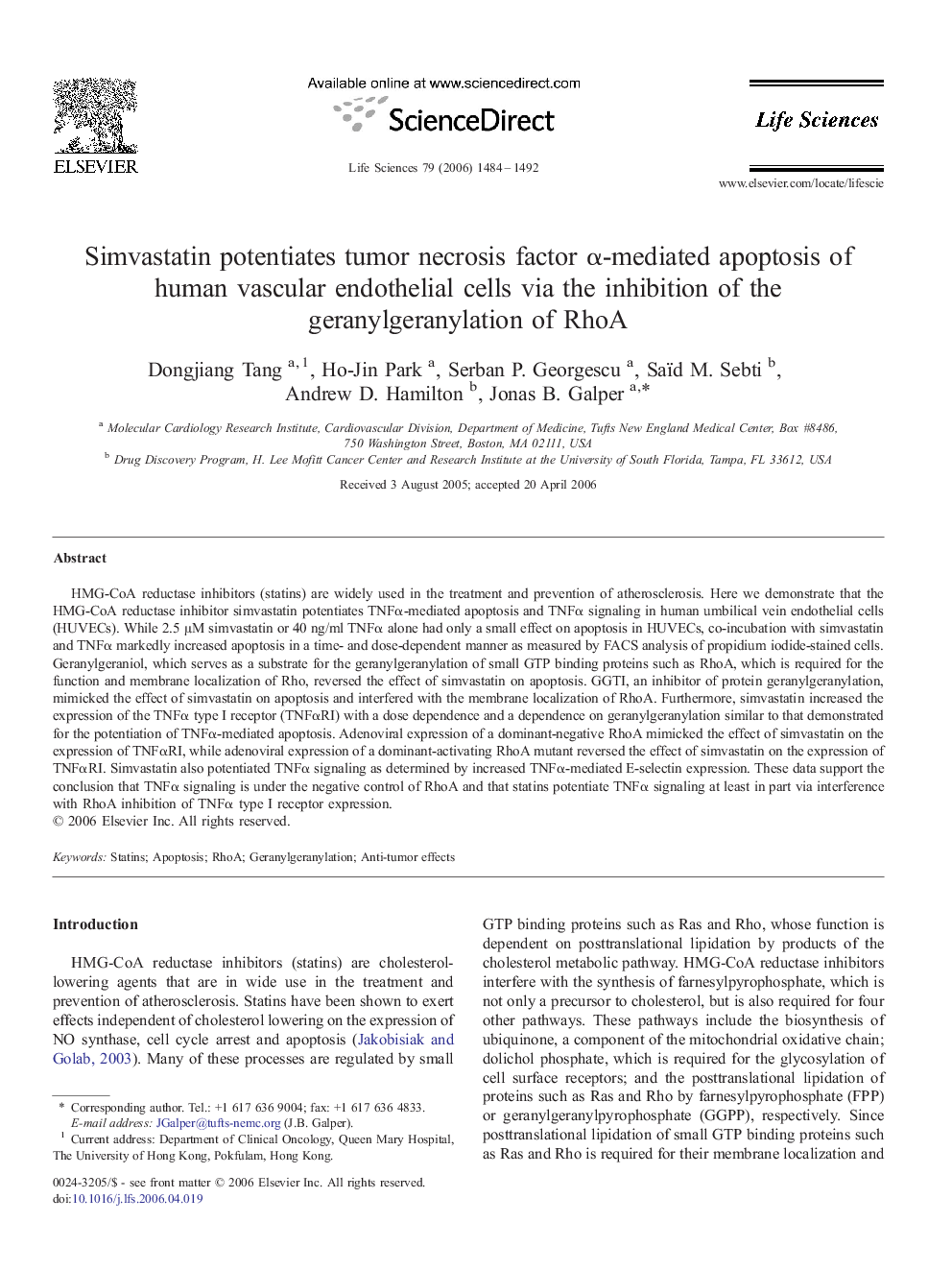| کد مقاله | کد نشریه | سال انتشار | مقاله انگلیسی | نسخه تمام متن |
|---|---|---|---|---|
| 2554254 | 1124957 | 2006 | 9 صفحه PDF | دانلود رایگان |
عنوان انگلیسی مقاله ISI
Simvastatin potentiates tumor necrosis factor α-mediated apoptosis of human vascular endothelial cells via the inhibition of the geranylgeranylation of RhoA
دانلود مقاله + سفارش ترجمه
دانلود مقاله ISI انگلیسی
رایگان برای ایرانیان
کلمات کلیدی
موضوعات مرتبط
علوم پزشکی و سلامت
پزشکی و دندانپزشکی
کاردیولوژی و پزشکی قلب و عروق
پیش نمایش صفحه اول مقاله

چکیده انگلیسی
HMG-CoA reductase inhibitors (statins) are widely used in the treatment and prevention of atherosclerosis. Here we demonstrate that the HMG-CoA reductase inhibitor simvastatin potentiates TNFα-mediated apoptosis and TNFα signaling in human umbilical vein endothelial cells (HUVECs). While 2.5 μM simvastatin or 40 ng/ml TNFα alone had only a small effect on apoptosis in HUVECs, co-incubation with simvastatin and TNFα markedly increased apoptosis in a time- and dose-dependent manner as measured by FACS analysis of propidium iodide-stained cells. Geranylgeraniol, which serves as a substrate for the geranylgeranylation of small GTP binding proteins such as RhoA, which is required for the function and membrane localization of Rho, reversed the effect of simvastatin on apoptosis. GGTI, an inhibitor of protein geranylgeranylation, mimicked the effect of simvastatin on apoptosis and interfered with the membrane localization of RhoA. Furthermore, simvastatin increased the expression of the TNFα type I receptor (TNFαRI) with a dose dependence and a dependence on geranylgeranylation similar to that demonstrated for the potentiation of TNFα-mediated apoptosis. Adenoviral expression of a dominant-negative RhoA mimicked the effect of simvastatin on the expression of TNFαRI, while adenoviral expression of a dominant-activating RhoA mutant reversed the effect of simvastatin on the expression of TNFαRI. Simvastatin also potentiated TNFα signaling as determined by increased TNFα-mediated E-selectin expression. These data support the conclusion that TNFα signaling is under the negative control of RhoA and that statins potentiate TNFα signaling at least in part via interference with RhoA inhibition of TNFα type I receptor expression.
ناشر
Database: Elsevier - ScienceDirect (ساینس دایرکت)
Journal: Life Sciences - Volume 79, Issue 15, 5 September 2006, Pages 1484-1492
Journal: Life Sciences - Volume 79, Issue 15, 5 September 2006, Pages 1484-1492
نویسندگان
Dongjiang Tang, Ho-Jin Park, Serban P. Georgescu, Saïd M. Sebti, Andrew D. Hamilton, Jonas B. Galper,